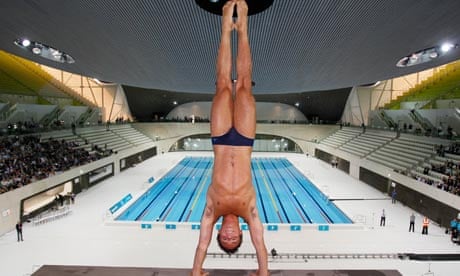A gagging order preventing businesses which helped build London's Olympics venues from promoting their involvement in the 2012 games has been lifted after the government paid the British Olympic Association £2m.
The BOA estimates that thousands of companies, which had been frustrated by bans on associating their names with the summer Games, will now benefit from the "stardust" of an event rated one of the most successful in Olympics history.
The decision was announced on Sunday by the secretary of state for culture, Maria Miller, and chairman of the BOA, Lord Coe. It followed a campaign by companies involved in the Games for the right to include details of their involvement in marketing materials.
"I am very glad it is happening but it should have happened six months ago," said Peter Murray, a marketing and communications consultant in the building industry who led the campaign. "The attention of the world is now on Rio and not on London. It will be a benefit to many firms, but all of the jobs for Rio have been allocated now."
Companies which had not paid the International Olympic Committee or the London organising committee to sponsor the Games were prevented by law from using their involvement in marketing materials. It meant the architects of the highly visible Aquatics Centre and velodrome were among those who could not talk about their involvement.
Brendon Cross, managing director of STL Communications, which provided phones for the opening and closing ceremonies, was prevented from issuing anything other than a 150-word statement about his firm's involvement and complained to David Cameron about it.
"It has been incredibly frustrating not to be able to talk about this," he said. "There is still scope for us to take advantage. At long last good sense has prevailed."
Asked why it did not provide the marketing rights for free, a BOA spokesman said: "These rights have a value, and it is through the sale of Olympic marketing rights that we create revenues so we can provide high-performance support to our athletes during the Olympic games."
Lord Coe said: "Thousands of British businesses supplied goods and services that were essential to the successful staging of the games, and I am delighted that many of these companies will now have the opportunity to highlight and officially promote their involvement in the Games.
Miller said the removal of the restrictions would enable firms to maximise the economic benefit from the Games. "Now we have removed the barrier, companies can capitalise on the role they played at home and abroad by really selling their involvement in one of the biggest and most successful projects this country has ever put on," she added.
